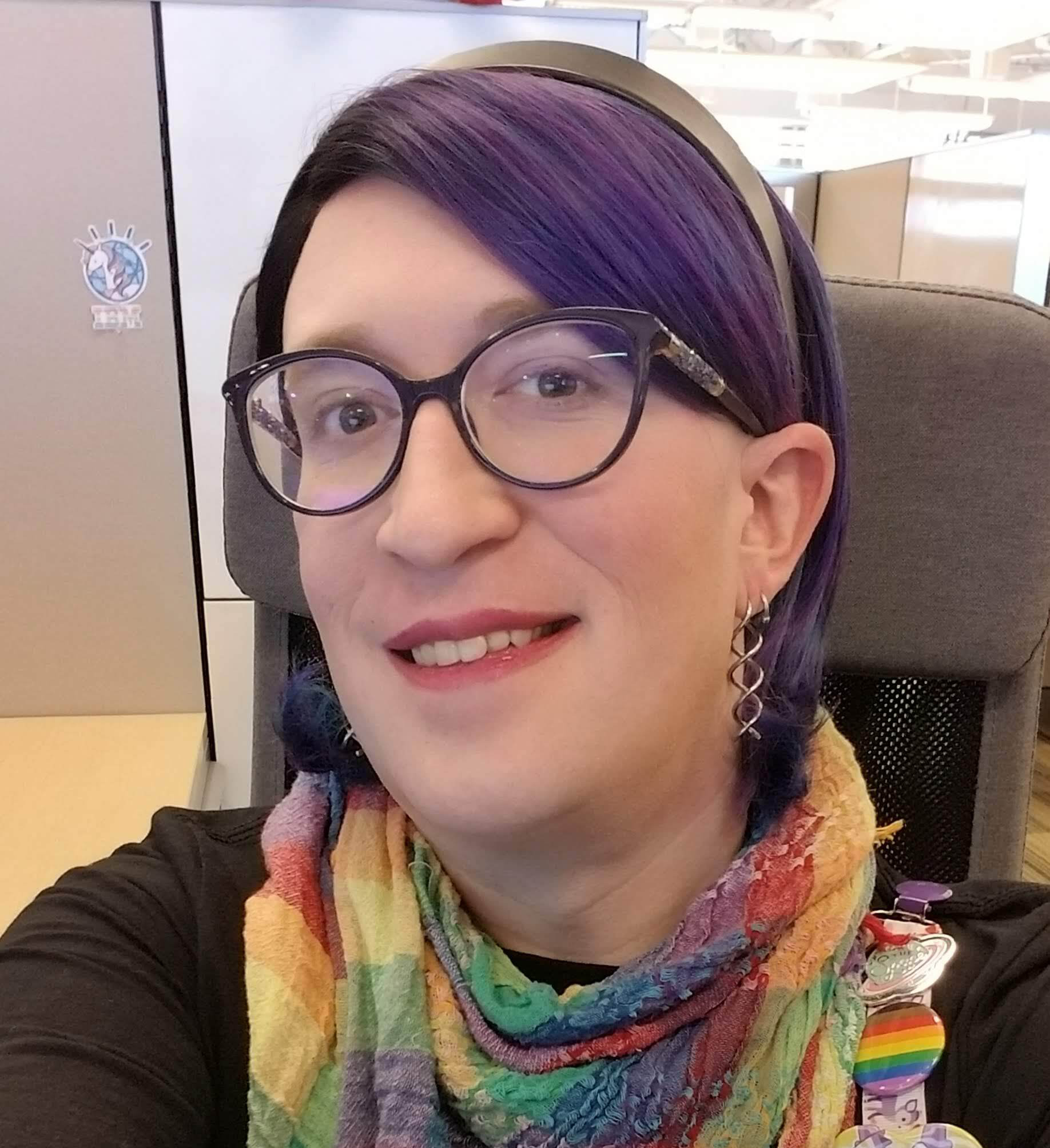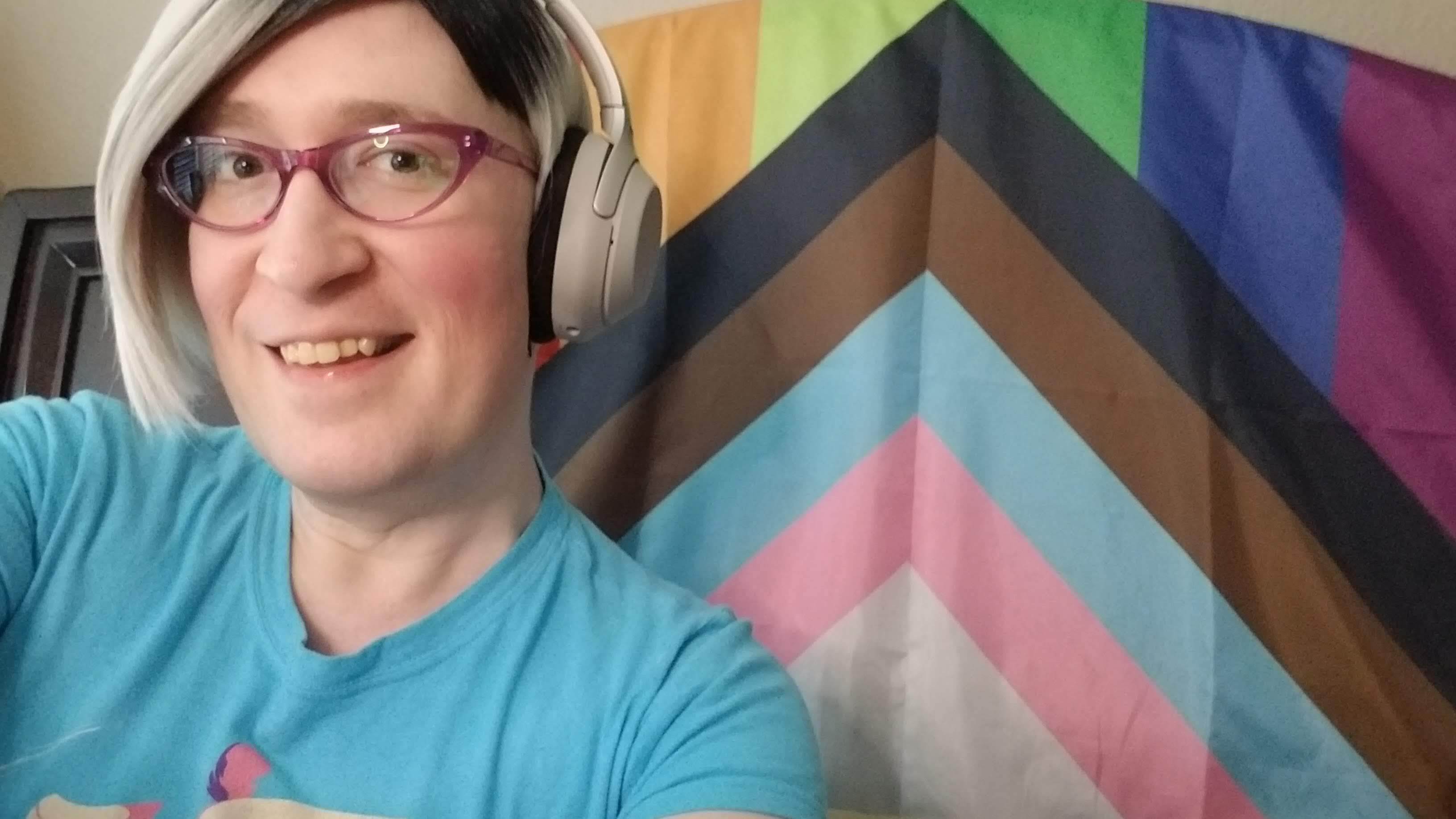Neurodiversity @ IBM
Autumn VanKirk: Paving Intentional Inclusion while Leading Security in Tech
"Neurodiversity Acceptance Month is a reminder that neurodivergent individuals exist, we deserve respect,
and we are a diverse community with a wide spectrum of thoughts and ideas"
- Autumn VanKirk, ACS Security Engineer, Team Lead

Tell me about yourself.
I was born and raised in the Midwest and have lived in Texas since 2008. In my free-time, I like to work on projects related to my many special interests, play video games, watch video game speed runs, or attend themed conventions and camping events. Professionally, my journey in tech began about 13 years ago. I first joined a small tech startup in Indiana, and later moved to Houston doing client systems administration support. Little did I know, this change in environment would ultimately bring me to IBM, where I’ve been a Team Lead for about 6 years. I’m a proud advocate of Neurodiversity in addition to LGBTQ+ advocacy.
What is your role at IBM?
I am a Network and Security Support Engineer Team Lead, where I orchestrate case ownership and client meetings, ensure support quality, share knowledge, and train fellow IBMers. On a day-to-day level, I help facilitate a global team that focuses on Network Security including firewalls, software-defined routers & advanced routing, Content Delivery Networks & DDoS protection, and Identity Providers.
What are some interesting projects you’ve worked on during your time at IBM?
One of my favorite projects has been consulting to help develop a new and client friendly method for ingesting data into IBM Cloud. I also enjoy improving public-facing documentation and internal training. I routinely speak on the topics of LGBTQ+ and Neurodiversity intersectionality from my lived experience.
How does technology or the work you do at IBM impact society?
As a Team Lead with experience across a wide array of our offering catalog, I ensure that we are providing accurate, high quality, and compassionate responses to IBM's clients. In my advocacy work with Neurodiversity and LGBTQ+, I also help ensure an inclusive and equitable workplace and society. This in total impacts society through fostering a diverse perspective, inclusive tech, and innovative ideas.

What does Neurodiversity Acceptance Month mean to you?
Neurodiversity Acceptance Month is a reminder that neurodivergent individuals exist, we deserve respect, and we are a diverse community with a wide spectrum of thoughts and ideas. This month is an opportunity to shine a light on the many neurodivergent individuals who have provided outstanding impacts to society, and most importantly, promote global acceptance, support and allyship.
What is an interesting fact about you that not many people know?
I'm always tinkering with one of my Special Interest projects. One of my more notable projects is building a better habitat for Opae Ula shrimp (Halocaridina rubra) than the ecospheres they tend to be sold in. I've also added LED mood lighting around the edges of my TV that mimic what's on the screen at any given time. I even spent the summer before getting hired into tech refurbishing and moving pianos!
If you could give business leaders one piece of advice, what would it be?
Throw away all assumptions about what your employees need. Instead, foster an environment where they can bring their whole selves to work so you can listen and learn how to best support them. It’s important that companies provide an environment that is conducive to neurodivergent professionals and ensures that we are able to have both a seat and a voice (spoken or digital) at the table. This means providing workplace accommodations for your neurodivergent staff and training all employees to be aware and accepting of others. Some simple accommodations you might consider would be to provide quiet spaces in the office environment, avoid strong fragrances and hard lighting (particularly fluorescent) and provide notice of changes in the environment, such as scheduled cleaning or painting. Some neurodivergent professionals may also benefit from working from home, so providing flexible work schedules and telepresence technology can help more neurodivergents thrive with your company. Each person (not just neurodivergents) has unique needs, so above all else learning to listen and be teachable is vital.